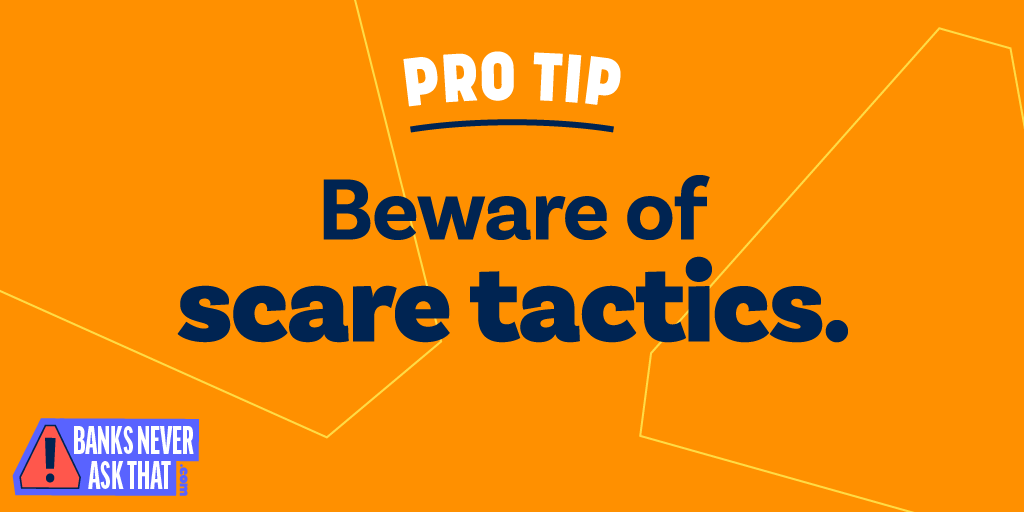If you think you are getting more fishy emails than ever before, you may be right.
Phishing – an attempt to gain access to your accounts and personal info – is attempted at a record pace in 2022 America.
That’s why, throughout the month of October, Regions Bank and banks across the nation are supporting the American Bankers Association’s #BanksNeverAskThat campaign to help keep customers safe.
Our latest effort is to show you the impact of phishing by the numbers.

In this quick, informative video, learn these 5 quick phishing facts:
- Phishing was the third-most common type of scam reported by the FBI in 2020.
- Phishing attacks are at their highest level since 2016.
- 1 in every 99 emails is a phishing attack.
- People lost $3.3 billion to phishing and other fraud in 2020.
- Millennials are 77 percent more likely than other age groups to lose money in email scams.
You can learn more about spotting phishing campaigns and test your scam IQ by going to BanksNeverAskThat.com and selecting “Play Scam City.” The game is fun, and, in a matter of minutes you’ll be even better prepared to keep your money and personal information secure.
Because our shared goal is to help keep you safe. And the best way is through education.
“Phishing is more prevalent than ever and, unfortunately, the bad guys aren’t going away anytime soon,” said Kimberly Reece of Regions Fraud Strategy Customer Experience Team. “You remain your best weapon. The best way to protect yourself is to be aware of trending scams and learn how to respond when something doesn’t seem right.”
Keep turning to Doing More Today throughout October for more tips and quick videos.
If you liked these phishing facts and tips, you can find more information from us at regions.com.
Related Articles From Doing More Today:

The information presented is general in nature and should not be considered, legal, accounting or tax advice. Regions reminds its customers that they should be vigilant about fraud and security and that they are responsible for taking action to protect their computer systems. Fraud prevention requires a continuous review of your policies and practices, as the threat evolves daily. There is no guarantee that all fraudulent transactions will be prevented or that related financial losses will not occur. Visit regions.com/STOPFRAUD or speak with your Banker for further information on how you can help prevent fraud.